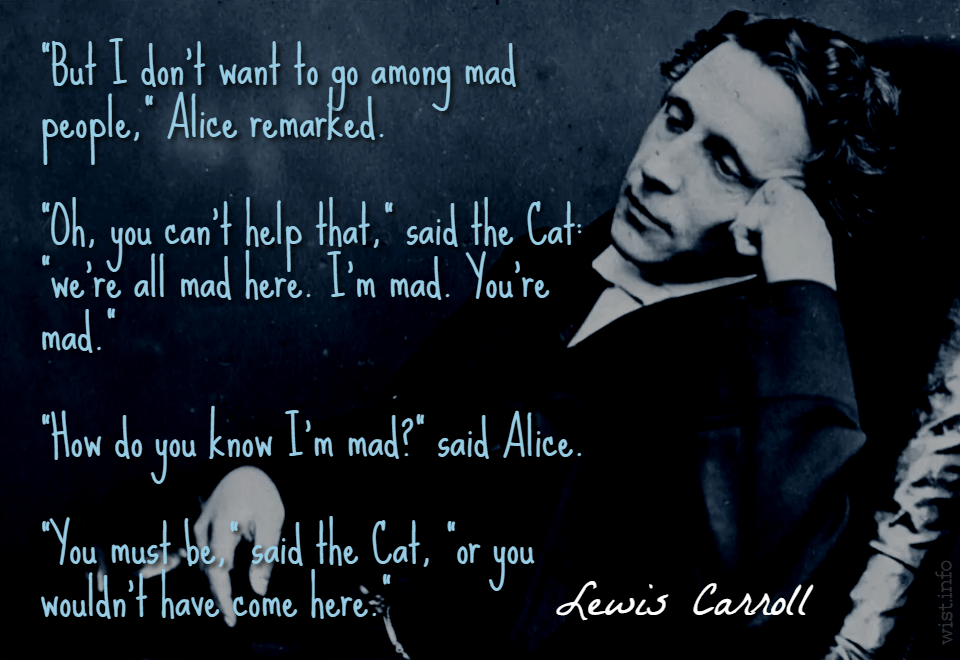And in truth, of course, I’m not just 60 — I’m twelve, I’m 23, I’m 37, I’m 42, I’m 18. I’m every age I’ve ever been. Depending on what day of the week it is and what the situation calls for at the moment.
[Und in Wahrheit bin ich natürlich nicht nur 60 – ich bin zwölf, ich bin 23, ich bin 37, ich bin 42, ich bin 18. Ich habe jedes Alter, das ich je gehabt habe. Je nachdem, welcher Wochentag ist und was die Situation gerade erfordert.]
William Martin "Billy" Joel (b. 1949) American singer, songwriter, pianist
“Ohne die Nazis hätte es Billy Joel nie gegeben,” Die Welt (2009-05-10)
This interview is published in German, but in it Joel comments he only knows a bit of the language (his father was a Jewish refugee from Germany before WW2), so it was likely conducted in English. The German version is from the article. The English version is from Wikiquote (source unknown), which titles the article "Without the Nazis, there wouldn't have been Billy Joel."
Quotations about:
situation
Note not all quotations have been tagged, so Search may find additional quotes on this topic.
We may define all the essentials of politeness, but we cannot determine how and where they should be used; they depend on ordinary habits and customs, are connected with times and places, and are not the same in both sexes nor in different ranks of life; intelligence alone cannot find this out; politeness is acquired and perfected by imitation.
[L’on peut définir l’esprit de politesse, l’on ne peut en fixer la pratique: elle suit l’usage et les coutumes reçues; elle est attachée aux temps, aux lieux, aux personnes, et n’est point la même dans les deux sexes, ni dans les différentes conditions; l’esprit tout seul ne la fait pas deviner: il fait qu’on la suit par imitation, et que l’on s’y perfectionne.]Jean de La Bruyère (1645-1696) French essayist, moralist
The Characters [Les Caractères], ch. 5 “Of Society and Conversation [De la Société et de la Conversation],” § 32 (5.32) (1688) [tr. Van Laun (1885)]
(Source)
(Source (French)). Alternate translations:
We may define Politeness, tho we can't tell where to fix it in practice. It observes received Uses and Customs, 'tis bound to times and places, and is not the same thing in the two Sexes, or in different conditions. Wit alone cannot attain it: 'tis acquired and compleated by Imitation.
[Bullord ed. (1696)]
We may define Politeness, tho we can't tell where to fix it in Practice. It observes receiv'd Uses and Customs, is bound to Times and Places, and is nto the same thing in the two Sexes, or in different Conditions; Wit alone cannot attain it, 'tis acquir'd and brought to perfection by imitation.
[Curll ed. (1713)]
It is possible to define the spirit of politeness, but not to lay down rules for its practice: it depends on custom and convention; it is related to periods and places and people, and it is not the same for the two sexes nor for various social conditions; one cannot attain it through intelligence alone, yet intelligence can enable one to imitate it, and to acquire perfection in it.
[tr. Stewart (1970)]
We all have a pretty clear understanding of goodness, but it seldom applies to the situation we’re in at the moment.
Mignon McLaughlin (1913-1983) American journalist and author
The Neurotic’s Notebook, ch. 5 (1963)
(Source)
Among other things I think humor is a shield, a weapon, a survival kit. Not only has this brief span of ours been threatened by such perils not of our making such as fire and flood, Tyrannosaurus Rex, the black death, and hurricanes named after chorus girls, but we have been most ingenious in devising means for destroying each other, a habit we haven’t yet learned how to kick.
So here we are several billion of us, crowded into our global concentration camp for the duration. How are we to survive? Solemnity is not the answer, any more than witless and irresponsible frivolity is. I think our best chance lies in humor, which in this case means a wry acceptance of our predicament. We don’t have to like it but we can at least recognize its ridiculous aspects, one of which is ourselves.
Ogden Nash (1902-1971) American poet
Commencement address at his daughter Linell’s boarding school
(Source)
Quoted in Douglas M. Parker, Dana Giaoia, Ogden Nash: The Life and Work of America's Laureate of Light (2005).
Things are never so bad that they can’t get worse. But they’re sometimes so bad they can’t get better.
Mignon McLaughlin (1913-1983) American journalist and author
The Second Neurotic’s Notebook, ch. 5 (1966)
(Source)
“But I don’t want to go among mad people,” Alice remarked.
”Oh, you can’t help that,” said the Cat: “we’re all mad here. I’m mad. You’re mad.”
”How do you know I’m mad?” said Alice.
”You must be,” said the Cat, “or you wouldn’t have come here.”Lewis Carroll (1832-1898) English writer and mathematician [pseud. of Rev. Charles Lutwidge Dodgson]
Alice’s Adventures in Wonderland, ch. 6 “Pig and Pepper” (1865)
(Source)
There may be no good reason for things to be the way they are.
Alain de Botton (b. 1969) Swiss-British author
The Consolations of Philosophy, ch. 1 “Consolations for Unpopularity,” sec. 4 (2000)
(Source)
Some men think that rules should be made of cast iron; I believe they should be made of rubber, so they can be stretched to fit any particular case and then spring back into shape again. The really important part of a rule is the exception to it.
George Horace Lorimer (1867-1937) American journalist, author, magazine editor
Old Gorgon Graham: More Letters from a Self-Made Merchant to His Son, ch. 3 (1903)
(Source)
I have no use for the strictures of You must. You must not.
[無可無不可]
Confucius (c. 551- c. 479 BC) Chinese philosopher, sage, politician [孔夫子 (Kǒng Fūzǐ, K'ung Fu-tzu, K'ung Fu Tse), 孔子 (Kǒngzǐ, Chungni), 孔丘 (Kǒng Qiū, K'ung Ch'iu)]
The Analects [論語, 论语, Lúnyǔ], Book 18, verse 8 (18.8.5) (6th C. BC) [ed. Lao-Tse, tr. Hinton (1998)]
(Source)
(Source (Chinese)). Alternate translations:
I have no course for which I am predetermined, and no course against which I am predetermined.
[tr. Legge (1861)]
I will take no liberties, I will have no curtailing of my liberty.
[tr. Jennings (1895); in the footnote he gives a more raw translation, "Without possibilities (or freedom to act) -- without impossibilities"]
With me there is no inflexible "thou shalt" or 'thou shalt not."
[tr. Soothill (1910)]
I have no categoric can and cannot.
[tr. Pound (1933)]
I have no "thou shalt" or "thou shalt not."
[tr. Waley (1938)]
I accept life as it comes. [tr. Ware (1950)]I have no preconceptions about the permissible and the impermissible.
[tr. Lau (1979)]
I avoid saying what should or should not be done.
[tr. Dawson (1993)]
I follow no rigid prescriptions on what should, or should not, be done.
[tr. Leys (1997)]
I have neither favorable nor unfavorable situation. [tr. Huang (1997)]I have not any stubborn positiveness or negation.
[tr. Cai/Yu (1998)]
I do not have presuppositions as to what may and may not be done.
[tr. Ames/Rosemont (1998)]
I have no "may" and no "may not."
[tr. Brooks/Brooks (1998)]
I have no preconceptions about what one can or cannot do.
[tr. Annping Chin (2014)]
This may be the source of Lin-Yutang, ed. The Wisdom of Confucius (1938):
The superior man goes through his life without any one preconceived course of action or any taboo. He merely decides for the moment what is the right thing to do.
EDGAR: Know thou this: that men
Are as the time is; to be tender-minded
Does not become a sword.William Shakespeare (1564-1616) English dramatist and poet
King Lear, Act 5, sc. 3, l. 35ff (5.3.35-37) (1606)
(Source)
Every body and every thing conspire to make me as contented as possible in it; yet I have seen too much of the vanity of human affairs, to expect felicity from the splendid scenes of public life. I am still determined to be cheerful and to be happy, in whatever situation I may be; for I have also learnt, from experience, that the greater part of our happiness or misery depends upon our dispositions, and not upon our circumstances. We carry the seeds of the one or the other about with us, in our minds, wheresoever we go.
Martha Washington (1731-1802) American socialite, wife of George Washington, First Lady (1789-1797)
Letter to Mercy Otis Warren (1789-12-26)
(Source)











